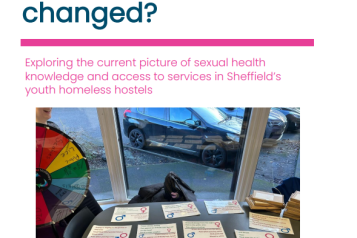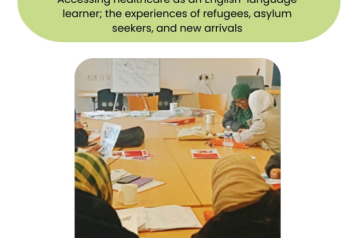Home Care - The African Caribbean perspective


Ensuring African Caribbean voices are heard
SACMHA is a registered charity which delivers a specialist service to people in need of assistance with their health and social care needs. The organisation has its genesis in the African Caribbean community and still have a specialism within that community.
Sheffield City Council are reviewing home care services in the city, and making plans to improve them. Hearing from local people who use home care is crucial to making sure their plans are the right ones, and SACMHA wanted to make sure that African Caribbean voices were heard as part of this process. They were awarded a #SpeakUp grant to support this, and used it to hold focus groups and discussions with service users, their families/carers, and social care professionals from the African Caribbean community.
What did people tell us?
People talked about positive experiences they've had.
Personal Assistants (PAs) and carers coming from the same cultural background as clients was valuable. People also had a positive experience when they could become familiar with their carers and knew who was coming to their home each day.
People also reported better experiences when employing PAs via Direct Payments, rather than receiving care through other systems.
People also shared experiences that hadn't gone so well.

Some people spoke about issues with care providers - specifically, a lack of experienced staff and staff who weren't caring or respectful. There is also a lack of time allocated to care tasks, which means carers cannot give individualised or person focused care.
Other people had encountered challenges when employing Personal Assistants through Direct Payments - it was difficult to find PAs and people had to rely on personal recommendations. Complex administration and finding holiday/sickness cover could also be hard.
A big theme was poor communication and the impact it had - for instance, agencies not listening to personal preferences relating to care (including needs relating to religion), carers talking over the clients, and people having to spend too much time 'chasing up' agencies.

Lack of culturally appropriate care was also discussed a lot. There is a lack of carers from different cultural backgrounds, and not enough consideration is given to individuals' cultural needs.
Another key issue was finance - costs were often unclear before people received care, and people were worried about losing their money trying to fund their care, which sometimes led to them turning down support they needed.
Finally, people talked about training - people felt there wasn't enough mandatory training in providing empathetic, person-centred care, and staff aren't trained in working with diverse communities and delivering culturally appropriate care.
What next?
Based on people's experiences, we made recommendations to Sheffield City Council and other local commissioners and providers of home care services. These relate to:
- Raising standards in the care sector
- Recruitment, and increasing the diversity of the workforce
- Delivering client focussed and culturally appropriate care
- Monitoring of care providers, transparency around commissioning
- Support around accessing personalised care such as direct payments
- Developing understanding and support around the costs of care
- Culturally appropriate advocacy
We are currently working with Sheffield City Council to ensure these experiences and recommendations influence their plans for the future of home care, and will continue to amplify the views of the people we spoke to and their communities wherever we can.
Want more information?
You can read the full report for more detail about people's experiences, and the changes they would like to see:


